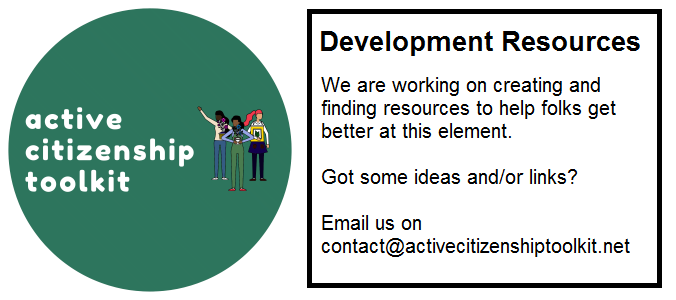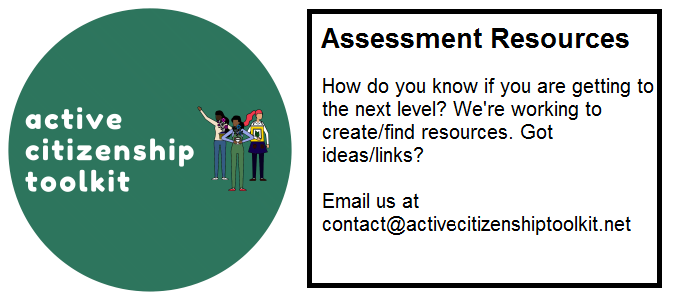Element Descriptor
You can’t “win” in bureaucratic games. Sorry, finished that sentence prematurely. You can’t “win in bureaucratic games unless you understand what is motivating the behaviour of the bureaucrats (aka “civil servants”) who are busy trying to ram through all sorts of stupid, albeit dressed up as “green” or “sustainable” – or whatever other meaningless drivel is being pushed at the moment – through the ‘democratic’ processes of your city/state. And unless you understand the tactics, and devise, share, refine countermeasures. If you don’t do this, you’re wasting everyone’s time.
Level descriptors
| Novice | Practitioner | Expert | Ninja |
|---|---|---|---|
| You have – and can communicate – a basic understanding of how hierarchical organisations constrain behaviour and reward conformity/obedience/secrecy. You understand and can explain using local examples, the Peter Principle and Pournelle’s Law | You have a more detailed and local understanding of the history of the local organisation you are dealing with – the past and present big fish, where they came from, and what has happened to unlucky/dissident bureaucrats in the past. You can explain ‘evaporative cooling’ and you can explain the different techniques bureaucrats use to gild the turd, and hide from scrutiny | You know the ins and outs of the various departments in the local government bureaucracy, how they fight like cats in a sack, who plays dirty, who leaks what to who and when, which politicians are under the thumb, which ones are on the outer. You know who the likely next bosses and their foibles.Meanwhile, you can confidently and accurately predict the kinds of spin specific Sir Humphreys will use to blameshift in any given scandal. | You can compare and contrast the bureaucratic cultures within your local authority with those of neighbouring/comparable authorities, and trace the lineages/tensions with national cultures. You have written extensively on the reality-distortion fields of bureaucracies in general, and the consequences for effective climate policy (hint, no such thing exists). |
Element Overview Essay
This is a draft. If something doesn’t make sense, or you see typos, or if you have further ideas, please email us on contact@activecitizenshiptoolkit.net
Understanding how bureaucrats slow things down
The causes of people not understanding how bureaucrats work. Either people are either bureaucrats who don’t want to admit to themselves what they’re doing. Or they’ve never encountered bureaucrats. Well, they have and they’ve blamed, “the bureaucracy” in general, or individual bureaucrats who they don’t like.
But you have to step back. not totally, but a bit and see this from a sociological and political point of view, so that you’re no longer just blaming the “entire system, man” or an individual.
The consequences of you not doing this are pretty straightforward. You will be confused, bemused, demoralised, you will burn out. And what pressure that you did bring to bear on a bureaucracy to behave itself will decrease. And the bureaucrats and the politicians, if there are politicians involved, will see their opportunity to return to a more pleasing status quo. And we saw this happen in Manchester around the production of quarterly carbon reports for the council. We as campaigners, forced them to concede this point. And as soon as we stopped pressuring them, they abolished them. They’ve now had to reintroduce them, of course. But that’s how the game is played.
The solutions are to compare notes about what bureaucrats are doing to start naming the tactics, giving them vivid names, to start mocking the tactics and to signal not only that you are aware of them, but that you are going to take effective countermeasures so that the cost of the tactic being deployed becomes prohibitively high for the bureaucrats and the politicians.
Now that’s great in theory, but they develop thicker skins and become more and more shameless. So I’m afraid in order to defeat a system, such as a bureaucracy, you’re going to need to movement-build and to mobilise an alternative, more legitimate system called civil society.
In the meantime, of course, you can be refining your skills around specific questions, freedom of Information, Act requests, intervening in meetings, to which you have been invited or maybe not invited. With very, very specific requests that leave your opponents with no feasible wiggle room.
Good luck
The “why” is pretty straightforward. bureaucracy is about the maintenance of power and decision making through the control of information and access to it, the control of who is within the decision making space or venue, what information they have, and reminding them of the consequences of making a decision that doesn’t fit with the settled opinion of the bureaucracy. “That’s a courageous decision. Minister.” This is about maintaining control or at least the illusion of control. This can also be about not embarrassing those higher up the food chain than yourself either elected or more commonly unelected, by exposing the gap between what was confidently asserted would happen or would be done and what actually did happen. “Mistakes were made, but not by us.”
So, the How is about refusing to give out information unless forced to and then giving out partial information so partial and incomplete that it is misleading, refusing access to decision making processes (and finding some malleable token folks to be part of the appearance of consultation).
And when forced to engage with the great unwashed, the number one rule is slow things down, slow things down, slow things down. Because this will, over time, demoralise many of the people wishing to be engaged. And then when you’ve got it down to just a few, you can say “Well, then they’re malcontents, and they’re not representative of all the other people.”
It has just occurred to me that this is a similar tactic to how the Trots come to dominate umbrella groups. Hold meeting after meeting each one more futile and circular than the last until you’re left with a small number, who can be rounded up and contained.
The consequences of not understanding all this dramatic. Social movements butt up against bureaucratic systems and they often lose or win a victory that is smaller than it could have been. And one that is vulnerable to being kicked “into the committees and left to die by the wayside.”
What is to be done? Don’t let them do it! Name the tactics that they use to slow things down.
It doesn’t take six weeks to write terms of reference of a group because you can simply cut and paste an existing group’s terms of reference terms and references and substitute in the names and the issues.
It doesn’t take six weeks to organise 12 people to have a meeting. We now have doodle polls.
It doesn’t take three months to release information. If you don’t release it to us now, we’ll use the Freedom of Information Act, and it will take 20 days.
Those are the sticks.
The carrots could be to publicly praise, bureaucrats and elected politicians when they do things right. Though, of course, the problem with praise sandwiches is that people take the praise and might end up quoting it six months later when everything’s gone to shit.
So that is some of the ways that you deal with bureaucrats, slowing things down. You also have to present a united front. You have to make sure that the other people on the advisory panel will only to support you or at least keep quiet.
If they go native because they think this will curry favour and that they will get to be in the next advisory panel that is set up after this one is inevitably abolished, and that this somehow means that they’re having access and influence, you need to educate them and you need to explain to them that – metaphorically – what’s the phrase – ”narcs get marks” “snitches get stitches” and “scabs get stabs”.
Development Resources

Assessment Resources

